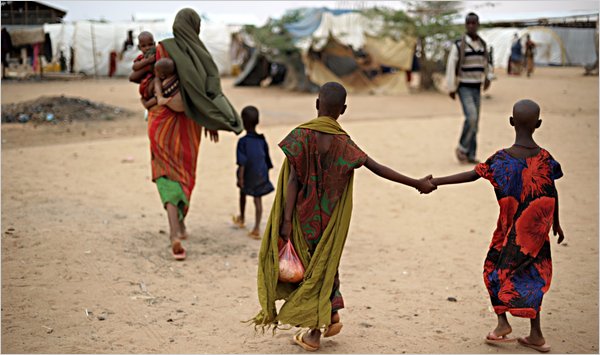
Somalia - Alarm for food and water persist. Humanitarian crisis continue
(Mogadishu, 31 August 2015): The results of the latest Food Security and Nutrition Assessment for Somalia, presented today in Mogadishu, indicate that the country’s humanitarian situation remains alarming.
Compared to six months ago, the number of people who face food crisis or emergency increased by 17 per cent, from 731,000 to 855,000. The number of those in food-stressed situations remained at 2.3 million. The lack of improvement is due in good part to an early end of Gu rains, leading to below-average cereal production. In total, 3.1 million people require humanitarian assistance.
“The levels of food insecurity and malnutrition are critical. Humanitarian actors and donors have prevented the situation being a lot worse than it is, but we all need to do more”, said Humanitarian Coordinator Peter de Clercq, “The situation among internally displaced people is particularly worrying”.
More than two thirds, or 68 per cent, of the people who are in crisis and emergency are internally displaced. Especially among them — who are already exposed to widespread human rights violations — food insecurity aggravates protection concerns: it regularly results in child labour, increased sexual and gender-based violence, and involuntary family separations.
Nearly 215,000 children aged under five are acutely malnourished, of whom almost 40,000 are severely malnourished and face a high risk of disease and death. In settlements for internally displaced people, global acute malnutrition rates are consistently above the emergency threshold of 15 per cent.
Food insecurity is likely to worsen by the end of the year. This will be due to below-average agricultural production, poor rainfall in some pastoral and agro-pastoral areas, trade disruption in the most conflict-affected areas, and continued displacement. Additionally, the El Niño phenomenon is expected to prompt heavy rains and cause flooding along the Juba and Shabelle rivers, flash floods in parts of Galgaduud, Mudug and Nugaal in Puntland, and drought conditions in parts of Somaliland.
This is likely to lead to disease, loss of crops and property, and to deterioration in the food security and nutritional situations. “We must continue investing in saving lives. We cannot allow a reversal in the important steps forward made on the humanitarian and development fronts”, said the Humanitarian Coordinator, “We must consolidate what has been achieved”.
The assessments are conducted by the Food Security and Nutritional Analysis Unit (FSNAU), managed by the Food and Agriculture Organization (FAO) in collaboration with technical government and partners, twice a year: after the Deyr season around January, and after the Gu season around August.
In 2011, Somalia experienced a devastating famine. Things have since improved, but humanitarian needs remain vast and the number of people in need of humanitarian assistance continues to fluctuate around 3 million. The ability to absorb shocks — whether conflict or natural disasters — is very limited. About 1.1 million people are internally displaced.


